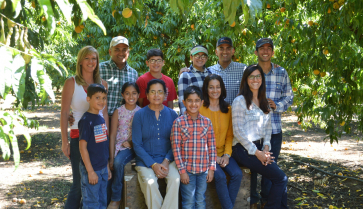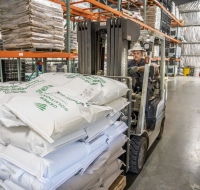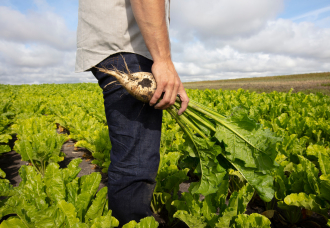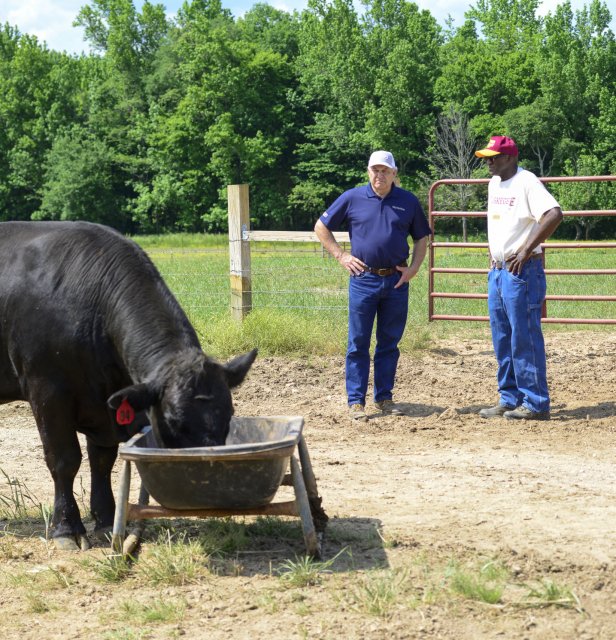






Farmer Co-ops Need
Section 199A
Fair tax policies are critical for farmer co-ops and their member-owners to remain competitive in dynamic and uncertain markets. Section 199A ensures farmers have the opportunity to thrive today and invest in the next generation of producers tomorrow.
Section 199A and Cooperatives Explained
Farmer-owned cooperatives have supported individual farmers for over a century, helping them compete through bargaining power, market intelligence, and value-added processing.
These co-ops have provided essential resources like credit, financing, and crop inputs while enabling farmers to participate in the entire food system
Farmers face risks very few industries encounter. Investing in America’s farming families and communities is a smart economic policy.
Definition
Section 199A(g) is a tax deduction that applies to proceeds from agricultural goods produced and/or marketed by farmer cooperatives. Co-ops can retain the proceeds from the deduction, but it is most commonly passed down to individual farmers.
History
For over 20 years, farmer co-ops benefited from a tax deduction (DPAD) to help U.S. farmers compete globally. Established in 2004, DPAD allowed co-ops to deduct income from agricultural production. It was repealed in 2017 and replaced by Section 199A(g), designed to function similarly.
Current status
The co-op provisions under Section 199A(g) serve as a replacement for the previous Section 199, operating in the same manner. The deduction remains at 9% of a co-op’s qualified production activities income (QPAI), limited to 50% of wages and not exceeding taxable income.
Impact
This benefits individual farmers who may lack wages to claim deductions on their own. Co-ops pass 95% of the deduction back directly to their farmer-owners.
Among NCFC members alone, $2 billion was returned to farmers in 2022.
Farmers and their cooperatives are taxed differently from other forms of business.
Section 199A levels the playing field between small businesses, co-ops, and large corporations, the last of which received a significant tax cut in 2017.
The Section 199A deduction enables farmers to invest in their operations, which boosts the economy through job creation, increased spending on agricultural production, and investment in rural communities.
Despite the lower corporate tax rate being made permanent in 2017, Section 199A is set to expire in 2025.
The deduction ensures small businesses and cooperatives receive similar benefits as multinational companies. It also enables them to remain competitive in dynamic markets and an uncertain industry.
Letting the provision expire will needlessly raise taxes on farmer co-ops and their member-owners, putting them at a disadvantage with their corporate competitors enjoying a lower tax rate.
Stories from Farmer Co-ops
In March 2025, NCFC hosted a fly-in which welcomed over 50 farmers, producers, and co-op leaders from across the country who took to Capitol Hill to meet with members of Congress and policymakers and urge the permanent extension of the Section 199A tax provision, which is vital to ensuring a level playing field for farmer co-ops and producer-members.
NCFC interviewed several attendees to share their firsthand experience about what the deduction means for them and how it impacts their farms and communities.
Resources
Whether you want to learn about the economic impact Section 199A has on farmers and their cooperatives in each state; hear directly from farmers, producers, board directors, and other co-op leaders about the importance of the Section 199A tax deduction; or stay up-to-date on NCFC’s activities and stakeholder engagement, click through the information and resources below to access the materials NCFC staff created to complement our strategic lobbying efforts to make the Section 199A tax deduction permanent.
Informational Materials
Section 199A State Fact Sheets
In 2023, NCFC conducted a survey of its members with the purpose of gathering information on the significant economic impact the Section 199A tax deduction has on farmer-owned cooperatives. Each state fact sheet contains the aggregated data received from the farmer co-ops with operations within each respective state.
Each state sheet includes the following data points:
- The number of employees in the state;
- The total annual wages paid to the employees in the state;
- The number of farmer-members in the state; and
- The total annual Section 199A deductions passed through to farmer-owners in the state.
In addition to the quantitative data set described above, we have also compiled “success stories” from some states that show the tangible benefits this deduction has on American farmers and their co-ops. These first hand accounts provide powerful examples of the real life impact policymakers have on co-ops.
Click the drop down menu below to view and download PDF versions of each available state’s fact sheet.
State Specific One-Pagers

Current News &
Legislative Activities
NCFC Statement on Congressional Passage of Budget Bill Making Section 199A Permanent
Statement of NCFC President and CEO Chuck Conner on Senate Passage of the Budget Reconciliation Bill
Statement of NCFC President and CEO Chuck Conner on the House Budget Reconciliation Bill
Statement of NCFC President & CEO Chuck Conner on House Ways & Means Reconciliation Markup
Reconciliation Inching Toward a Possible Weekend Vote
Reconciliation heads to the Senate
NCFC, National Ag Organizations Send Letter to House Majority Leadership Supporting Certain Tax Provisions in Reconciliation Bill



Share Your Story
NCFC is still collecting relevant stories and/or narrative examples of how the Section 199A deductions were used to benefit the lives of farmers and their families, cooperative businesses, and the communities they serve.
These stories will be used in conjunction with the quantitative data to create the fact sheets linked above. The one-pagers will be used by NCFC’s lobbying team to distribute when visiting congressional offices, giving our advocacy a personal face and making the farmer co-op story that much more powerful.
Click the button below to submit your story.